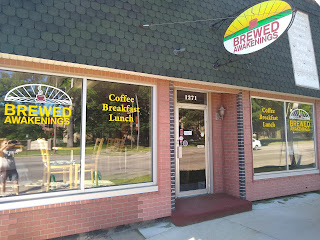Sacramental Living (2009)
Originally posted as a Facebook Note March 31, 2009.
Some time ago I was asked by our fearless class leader to lead two adult Sunday school classes on the topic of sacramental living. This was not anything to which I had given any thought at all, and I may have misunderstood the topic.
However, the dates eventually came, and I put something together. The first step, given that I've been hanging around churches all my life but have spent zero time thinking about sacraments, was to figure out what they were. Augustine called them a "visible sign of an invisible reality," though they are not specifically depictions of God. All religions have some aspects we could call sacramental. Traditional Christianity had (has, in the case of the Roman Catholic Church) seven sacraments: baptism, penance, confirmation, communion, marriage, holy orders, and extreme unction (last rites). United Methodism, among other Protestant churches, recognizes only two: baptism and communion, because these were specifically commended by Jesus (although you could make a case for marriage, too, given his miracle at the wedding feast at Cana). Methodism does not emphasize the concept of sacrament, as my attempt to find any discussion of it at www.umc.org soon revealed. No wonder I have spent so long sacramentally clueless.
So what does 'sacramental living' mean? Depends on who you ask. An Internet search revealed three broad approaches.
- At the Quaker site, www.fum.org, one Kenny Harvey defines sacramental living as 'radical faithfulness.' In short, living one's life as a representation of Christ, such that other people would notice. We are all supposed to do this anyway, but it's not easy, especially under pressure.
- A blogger named Ian Wrisley (secularsaints.blogspot.com) defined it as 'everyday mysticism,' finding the holy in the mundane, from nature to other people. Peter Mayer captures this in his excellent song, "Everything is Holy Now." [video is above]
- The Presbyterian Church (USA) focuses on their website, www.pcusa.org, on making the actual sacraments (baptism and communion, remember) more central to the worship experience by incorporating their elements into worship even when there's not an actual baptism or communion going on.


Comments
Post a Comment